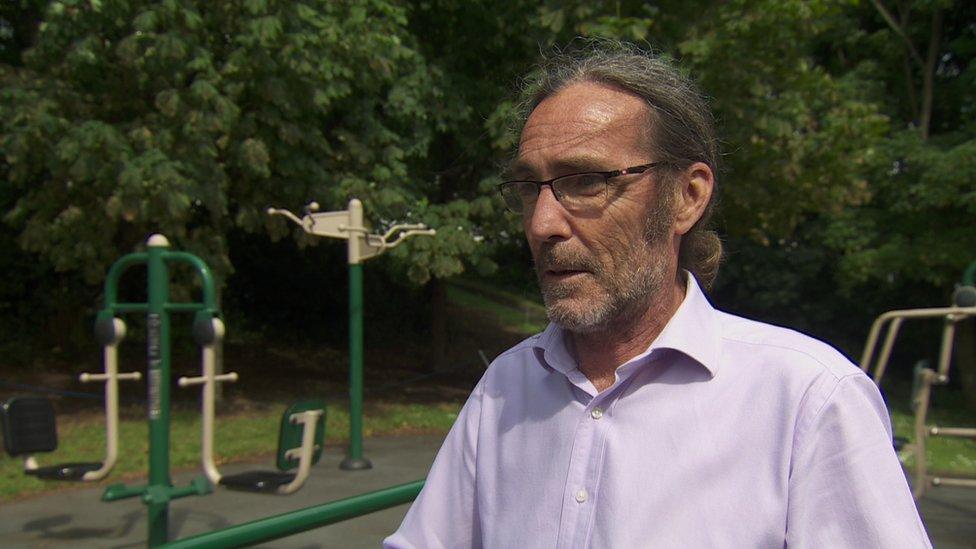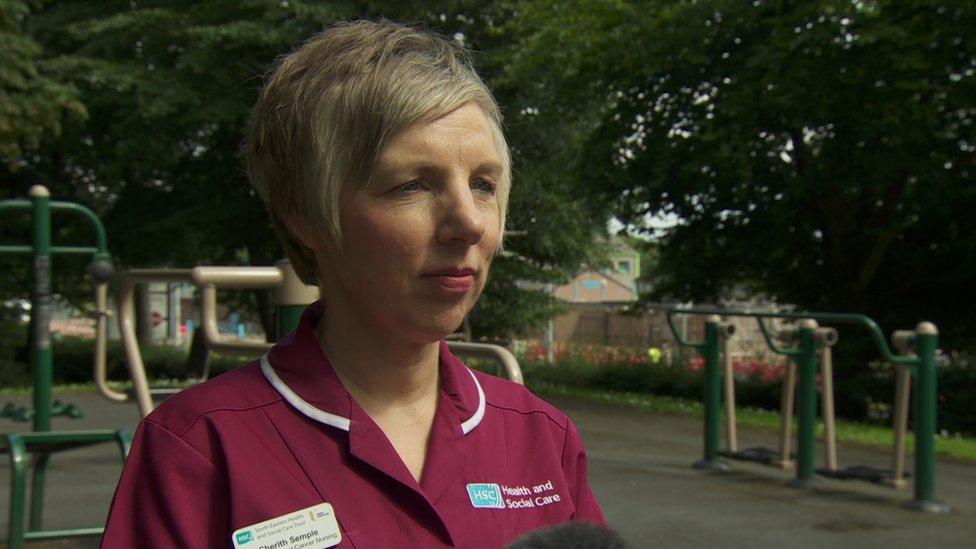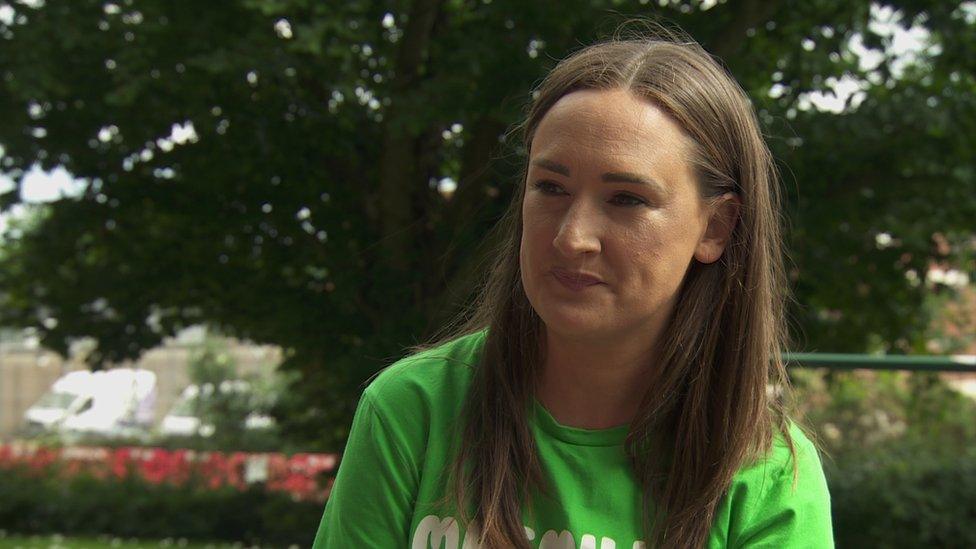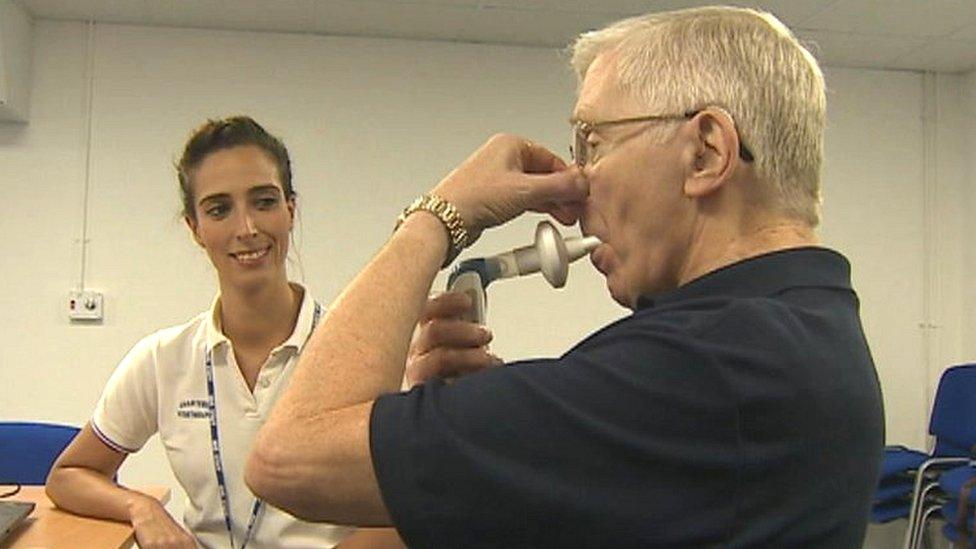Prehab: Getting patients fit for cancer treatment
- Published
Roy Cairns says taking part in the cancer prehab programme was a "win-win"
A former cancer patient has said getting fit between being diagnosed and starting surgery helped speed up his recovery.
Roy Cairns, 58, was diagnosed with liver cancer in 2019.
Twelve months later a tumour was found on his lung.
Mr Cairns said taking part in the cancer prehab programme piloted by the South Eastern Health Trust after his second diagnosis was a "win-win", not only for himself but also his surgeons.
"I think when you get that diagnosis you are left floundering and with prehab the support you get gives you focus and a little bit of control back in your life," he said.
Prehabilitation (prehab) means getting ready for cancer treatment in whatever time you have before it starts.
Mr Cairns is one of 175 patients referred to the programme which involves the Belfast City Council and Macmillan Cancer Support.
The programme is available to patients within the South Eastern Trust who have been newly diagnosed with colorectal, lung and head and neck cancer.

Roy Cairns is one of 175 who have been referred to the programme
As well as promoting physical activity prior to surgery, a team helps address nutrition and, if required, smoking and alcohol addiction.
Mr Cairns, who was a heavy smoker, described the smoking cessation team as "absolutely brilliant".
Initially he had surgery on his kidney but, as part of a follow up, a tumour was removed from his lung.
"I haven't smoked in over a year," he said.
"They supported me all the way through my treatment by giving me a call every day.
"I didn't have to go to the chemist, they delivered patches and gum to my door."

Dr Cherith Semple says the pilot is proving a success in the short and long-term
Dr Cherith Semple said the point of the programme is to " improve people's physical well-being as much as possible before treatment and to offer emotional support at a time that can be traumatic".
Dr Semple, who is a leader in clinical cancer nursing, said this new approach to getting patients fit prior to their surgery was proving a success, both in the short and long-term.
She said: "We know that it can reduce a patient's hospital stay post-surgery and it can reduce your return to hospital with complications directly afterwards."
The programme is being evaluated and it is hoped it will be expanded to other health trusts with the backing of the local council.

Claire Murphy says the programme has helped boost the morale of patients
Cancer prehabilitation is designed to encourage people to take an active role in their own recovery.
Claire Murphy, a Macmillan Move More co-ordinator, said the morale among the various groups is a "tonic".
Among her patients is an obese man who had lost all confidence and hope of getting better.
"From prior to his surgery and then afterwards he has lost weight and has built being active into everyday life," she said.
"He is part of a group and the chat helps his mental health too.
"We try and get people in that optimum state so they are better able to go through with their surgery and then have that same frame of mind afterwards to keep moving."
It is hoped the pilot will be adopted by other health trusts.
The pilot covers three particular parts of a patient's health:
What you are eating and your weight
Physical activity or exercise
Mental wellbeing
Stopping smoking and cutting down on alcohol can also help.
Meanwhile Mr Cairns, who is a solicitor, said he is "loving life" and "embracing" walking more and continuing not to smoke.
"The health team just wrap their arms around you and look after you - what is there not to like."
Related topics
- Published28 November 2019

- Published26 December 2019
